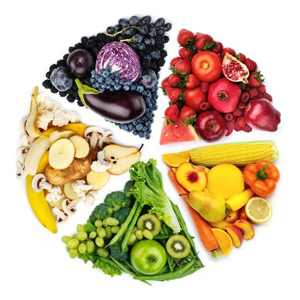Ivan Petkov
Christian fasting is a voluntary corporal abstinence, the goal of which is to revive the spiritual life of the believer. Abstinence from food is at the base of fasting rather than exhaustion of the body, so those who fast have to assess their abilities, preparation and willingness to do so. If we try to count the days of fasting in a year, we will find out that they number over 200. Now that we are on the verge of Easter, of the longest fasting that lasts until Easter, it would be appropriate to recall some features that make fasting part not only of Christianity but also of our cultural traditions. Last, but not least, people who are not religious observe the fast, their aim being to relieve the body in search of health effects. In times when our food is “artificial” and our lifestyle is more sedentary, fasting finds its place in the life of modern man.
The most common rules of fasting
Like any other special diet fasting too has its own rules, which one should know and observe. Christian fasting has its spiritual requirements, making it something more than just a diet.
1. Fasting is an ascetic feat requiring preparation and gradual involvement. Fasting should begin gradually. It usually starts with abstinence from meat dishes on Wednesdays and Fridays throughout the year.
2. Those who want to fast should talk with an experienced cleric, tell him about their spiritual and physical condition and ask him to bless the fasting.
3. Sick people must consult a doctor. Pregnant women should be very, very careful in terms of fasting. Minor children and travellers are permitted to observe lighter fasting.
4. Breaking fast (starting to eat meat dishes) takes place after the long fasting, during the holidays after the liturgy, and should also be gradual.
5. There are six degrees of strictness in fast observing:
- eating everything except meat (Meat Lent)
- trying some fish
- eating hot food with vegetable oil
- eating hot food without oil
- eating cold food without oil and without hot drinks (the so-called dry food)
- abstaining from food.
On days when fish is permitted, hot food cooked with vegetable oil is also allowed. Stricter fasting on certain days requires a blessing from a priest. Invertebrates (snails, oyster, octopus, etc.) are considered meatless food.
7. Corporal fasting without spiritual fasting does not contribute towards the salvation of the soul. To the contrary, it can be spiritually harmful if someone abstaining from food lives on the thought of his or her own superiority. True fasting is associated with prayer, repentance, abstinence from vices and passions, eradication of bad deeds, forgiveness of insults, abstention from conjugal life, from amusement and entertainment, even from watching TV.
There are two groups of Orthodox fasting according to the duration, namely one-day and multi-day fasting.
One-day fasting
The Orthodox Church orders special meatless days during the week as follows:
- every Wednesday - to remember Jesus Christ’s falling into suffering
- every Friday - to remember his suffering and death
- for Epiphany, 5 January (18 January, old style) - to decently prepare for this great feast
- for the Feast of the Cross, 14 September - to remember the suffering of Jesus Christ on the cross, and
- the Beheading of St. John, 29 August (11 September, old style).
Christians are required to fast every Sunday and feast day until the holy liturgy finishes.
Fasting can be general - mandatory and personal - voluntary. Such voluntary fasting is the three-day fasting, when the first three days before Lent are spent in abstinence. It is observed by those who are willing and able to withstand it.
Multi-day fasting
The Orthodox Church observes four such fasts, as follows:
- The Great Lent
- The fast of Peter - the First Sunday after Pentecost to Peter (29 June)
- The fast of the Assumption - from 1 August to 14 August
- Christmas Eve.
The Great Lent or the Great 40 Days is the most rigorous and longest fast. It begins seven weeks before Easter. It is also called the Great 40 Days since it lasts 40 days, but it unites the week of Christ's suffering, which recalls the last events in the earthly life of God, especially His suffering, death and burial. That is why it is called the Holy Week, i.e. the week of suffering.
To move on to the health aspects of fasting I will mention that modern nutritionists believe that the 40 days of the Great Lent are not selected at random. In addition to the religious motives, in this period the body recovers its normal balance between acidity and alkalinity, especially after the winter period when we consume a lot of meat, fewer fruits and vegetables (especially in the past) and live a more sedentary lifestyle.
Health and fasting

In our tradition fasting means privation of meat, milk and dairy products, eggs, fish, alcohol, abstinence from carnal pleasures. Since we do not take proteins of animal origin while fasting, we must replace them with vitamins, microelements, proteins and carbohydrates of plant origin in order to maintain the balance in the body. The food permitted during fasting is usually of plant origin, including fruits and vegetables, pasta and everything that is not of animal origin you can think of.